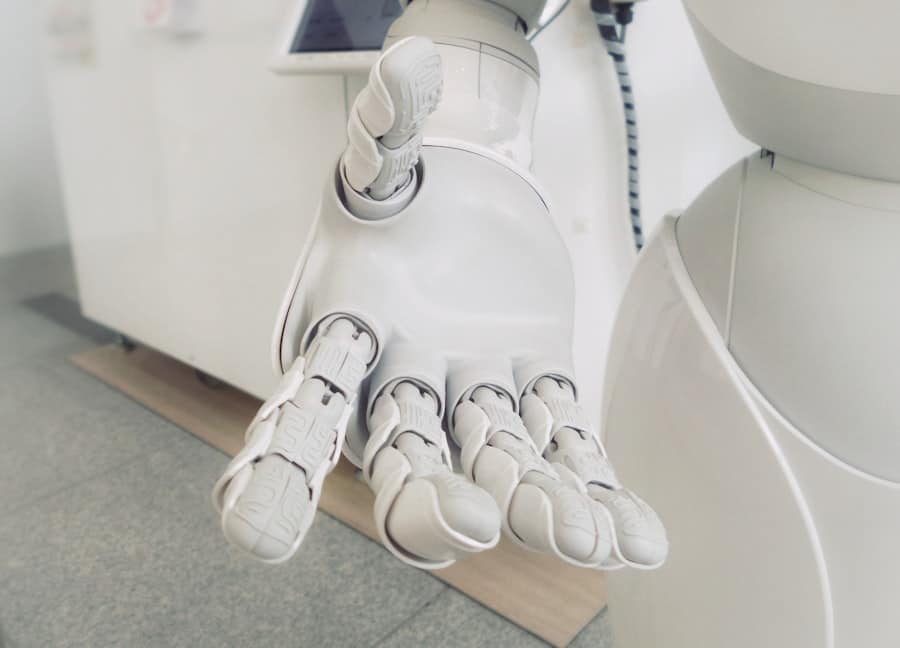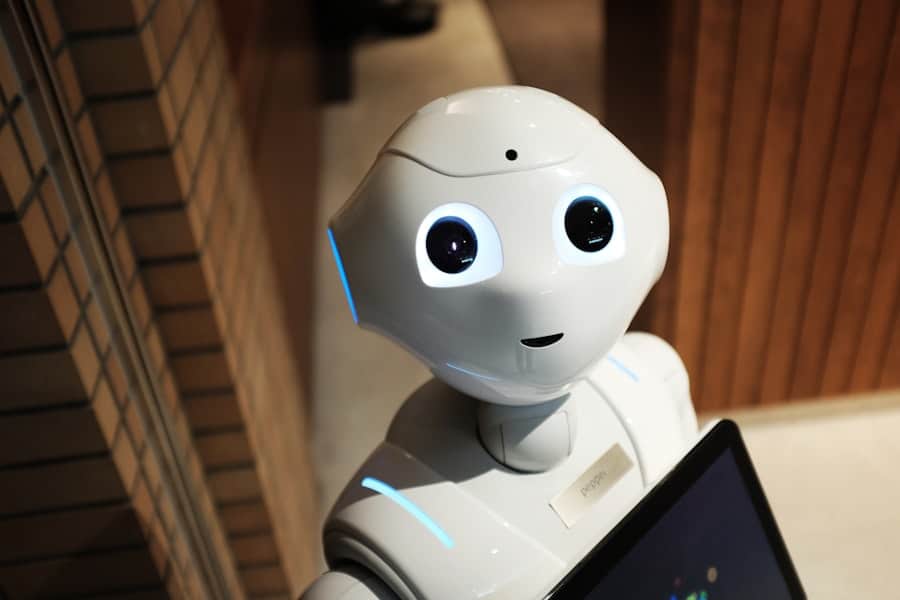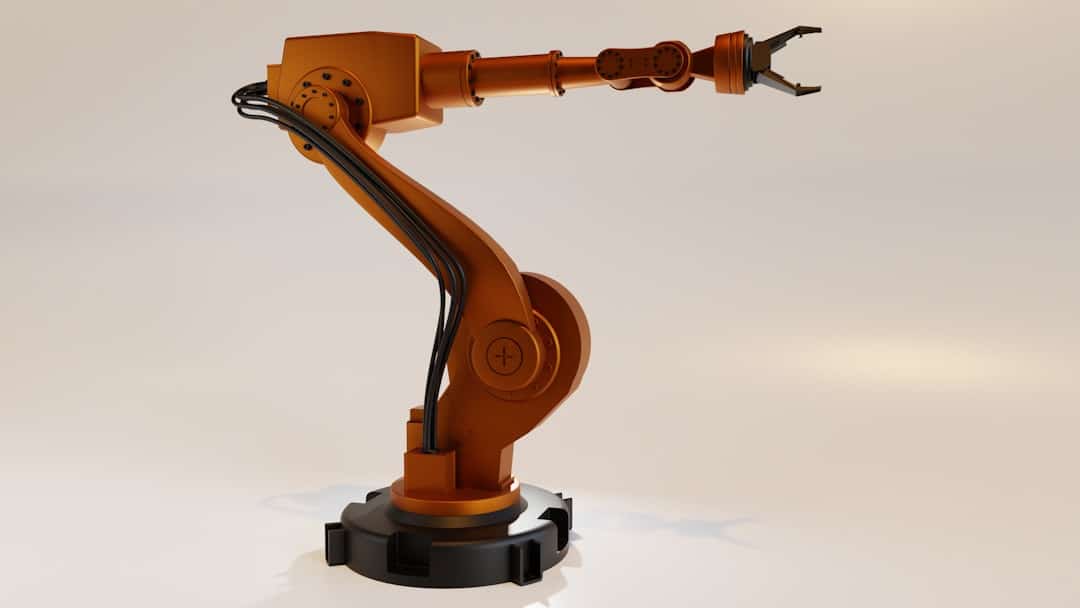The integration of robotics into luxury hotels marks a transformative shift in the hospitality industry, where the pursuit of excellence and guest satisfaction is paramount. As technology continues to evolve, luxury hotels are increasingly adopting robotic solutions to enhance their service offerings, streamline operations, and create memorable experiences for their guests. This trend is not merely a reflection of technological advancement; it represents a strategic response to changing consumer expectations and the competitive landscape of the hospitality sector.
The use of robotics in luxury hotels encompasses a wide range of applications, from automated check-in systems to robotic concierges, each designed to elevate the guest experience while optimizing operational efficiency. Robotics in luxury hotels is not just about replacing human labor; it is about augmenting the capabilities of hotel staff and providing guests with innovative services that were previously unimaginable. For instance, robots can handle routine tasks such as room service delivery or luggage handling, allowing human staff to focus on more personalized interactions with guests.
This synergy between human and robotic services creates a unique environment where technology enhances the overall guest experience without compromising the warmth and hospitality that luxury hotels are known for. As we delve deeper into the various applications of robotics in this sector, it becomes evident that the implications extend far beyond mere convenience; they touch upon the very essence of what it means to provide exceptional service in a modern luxury hotel.
Key Takeaways
- Robotics in luxury hotels is revolutionizing the guest experience by providing efficient and personalized services while enhancing safety and sustainability.
- Automation in guest services, such as check-in and room service delivery, improves efficiency and allows hotel staff to focus on providing exceptional customer service.
- Robotics enable personalized guest experiences through features like in-room voice assistants and robotic concierges, creating a unique and memorable stay for each guest.
- Robotics play a crucial role in enhancing safety and security in luxury hotels through features like robotic security patrols and contactless services.
- Sustainability is a key focus in luxury hotels, and robotics contribute to this by reducing energy consumption and waste, ultimately leading to a more eco-friendly operation.
Automation and Efficiency in Guest Services
One of the most significant advantages of incorporating robotics into luxury hotels is the automation of guest services, which leads to enhanced efficiency and reduced operational costs. Automated check-in kiosks, for example, allow guests to bypass long lines at the front desk, providing a seamless arrival experience. These kiosks can be equipped with facial recognition technology or mobile app integration, enabling guests to check in using their smartphones.
This not only expedites the process but also minimizes human error, ensuring that guests receive accurate information regarding their reservations and room assignments. Moreover, robots can be deployed for various service tasks that traditionally require human intervention. For instance, robotic delivery systems can transport food and beverages directly to guest rooms or poolside lounges.
These robots are often equipped with advanced navigation systems that allow them to maneuver through crowded spaces without colliding with obstacles. By automating these routine tasks, hotels can significantly reduce wait times for guests while freeing up staff to engage in more meaningful interactions. This shift not only enhances operational efficiency but also contributes to a more enjoyable stay for guests who appreciate prompt and reliable service.
Personalized Guest Experiences with Robotics

In an era where personalization is key to customer satisfaction, robotics offers luxury hotels an innovative way to tailor experiences to individual guest preferences. Advanced AI algorithms can analyze data collected from previous stays, allowing hotels to anticipate guest needs and preferences before they even arrive. For example, a robotic concierge could greet returning guests by name and offer personalized recommendations based on their past activities or dining preferences.
This level of customization creates a sense of familiarity and connection that enhances the overall guest experience. Furthermore, robots can facilitate unique experiences that cater to specific interests or desires. For instance, some luxury hotels have introduced robots that can serve as personal trainers or wellness coaches, guiding guests through fitness routines or meditation sessions tailored to their individual goals.
Additionally, robots equipped with augmented reality capabilities can provide immersive tours of hotel amenities or local attractions, enriching the guest’s understanding of their surroundings. By leveraging robotics in this manner, luxury hotels can create memorable experiences that resonate with guests long after their stay has ended.
The Role of Robotics in Enhancing Safety and Security
Safety and security are paramount concerns for luxury hotels, and robotics plays a crucial role in addressing these issues. Surveillance robots equipped with advanced cameras and sensors can patrol hotel premises, monitoring for unusual activity and ensuring guest safety. These robots can operate autonomously or be controlled remotely by security personnel, providing real-time data and alerts in case of emergencies.
The presence of such technology not only enhances security measures but also instills a sense of safety among guests who may feel more secure knowing that advanced monitoring systems are in place. In addition to surveillance, robotics can also assist in emergency response situations. For example, some hotels have implemented robots designed to deliver essential supplies during crises, such as medical kits or food and water during natural disasters.
These robots can navigate through complex environments, ensuring that help reaches those in need quickly and efficiently. By integrating robotics into their safety protocols, luxury hotels can enhance their preparedness for emergencies while reassuring guests that their well-being is a top priority.
Robotics and Sustainability in Luxury Hotels
Sustainability has become a critical focus for luxury hotels as they strive to minimize their environmental impact while maintaining high standards of service.
For instance, robotic systems can optimize energy consumption by monitoring usage patterns and adjusting lighting and heating accordingly.
This not only reduces energy costs but also contributes to a smaller carbon footprint. Additionally, robots can assist in waste management by sorting recyclables from general waste more efficiently than human staff. Some hotels have begun using robotic systems that can identify different types of materials and separate them accordingly, ensuring that recyclable items are processed correctly.
This level of precision helps luxury hotels enhance their sustainability efforts while promoting responsible practices among guests. By embracing robotics as part of their sustainability initiatives, luxury hotels can position themselves as leaders in environmental stewardship within the hospitality industry.
Challenges and Limitations of Implementing Robotics in Hospitality

Despite the numerous benefits associated with robotics in luxury hotels, there are several challenges and limitations that must be addressed before widespread adoption can occur. One significant concern is the initial investment required for implementing robotic systems. The cost of purchasing and maintaining advanced robotic technology can be substantial, particularly for smaller boutique hotels that may lack the financial resources of larger chains.
This financial barrier may hinder some establishments from fully embracing robotics as part of their service offerings. Moreover, there is the challenge of integrating robotics with existing hotel management systems. Ensuring seamless communication between robotic systems and traditional hospitality software requires careful planning and technical expertise.
Additionally, staff training is essential to ensure that employees are comfortable working alongside robots and understand how to leverage technology effectively to enhance guest experiences. Resistance to change among staff members may also pose a challenge, as some employees may feel threatened by the introduction of automation into their work environment.
The Future of Robotics in Luxury Hotel Experiences
Looking ahead, the future of robotics in luxury hotel experiences appears promising as technology continues to advance at an unprecedented pace. Innovations such as artificial intelligence and machine learning will likely lead to even more sophisticated robotic systems capable of understanding and responding to guest needs with greater accuracy. For instance, future robotic concierges may be able to engage in natural language conversations with guests, providing personalized recommendations based on real-time data analysis.
Furthermore, as consumer expectations evolve, luxury hotels will need to adapt their offerings to remain competitive. The integration of robotics will likely become a standard expectation rather than a novelty, pushing hotels to continually innovate and enhance their robotic services. Collaborations between technology companies and hospitality brands may lead to groundbreaking developments that redefine the guest experience entirely.
The Impact of Robotics on the Hospitality Industry
The impact of robotics on the hospitality industry is profound and multifaceted, particularly within the realm of luxury hotels where exceptional service is non-negotiable. By embracing automation and advanced technologies, these establishments are not only enhancing operational efficiency but also redefining what it means to provide personalized guest experiences. As robotics continues to evolve, its role in enhancing safety, security, and sustainability will further solidify its place within the hospitality landscape.
While challenges remain regarding implementation and integration, the potential benefits far outweigh the obstacles faced by luxury hotels venturing into this new frontier. The future promises exciting possibilities as robotics becomes an integral part of the hospitality experience, allowing hotels to meet the demands of modern travelers while maintaining their commitment to excellence. As we move forward into this new era of hospitality driven by technology, it is clear that robotics will play a pivotal role in shaping the experiences offered by luxury hotels around the world.
In the ever-evolving landscape of luxury hospitality, robotics are playing a pivotal role in enhancing guest experiences. From automated check-ins to personalized room services, robots are redefining the standards of opulence and convenience. A related article that delves into the broader technological trends influencing various industries, including hospitality, is available on Enicomp. You can explore these insights by visiting Top Trends on LinkedIn 2023, which highlights how cutting-edge technologies are shaping the future across different sectors.
FAQs
What are some examples of robotics being used in luxury hotels?
Some examples of robotics being used in luxury hotels include robot concierges that can assist guests with information and requests, robot room service delivery, and robotic luggage handling.
How do robotics enhance the guest experience in luxury hotels?
Robotics enhance the guest experience in luxury hotels by providing efficient and personalized service, reducing wait times for requests, and creating a unique and memorable experience for guests.
What are the benefits of using robotics in luxury hotels?
The benefits of using robotics in luxury hotels include increased efficiency in service delivery, cost savings in labor, the ability to handle repetitive tasks, and the novelty factor that can attract guests.
Are there any concerns or challenges associated with using robotics in luxury hotels?
Some concerns and challenges associated with using robotics in luxury hotels include the potential for job displacement, the need for maintenance and technical support, and the importance of maintaining a balance between technology and human interaction.
How are luxury hotels incorporating robotics while maintaining a high level of personalized service?
Luxury hotels are incorporating robotics while maintaining a high level of personalized service by using robots for tasks that do not require human touch, while still ensuring that human staff are available for more complex guest needs and interactions.

